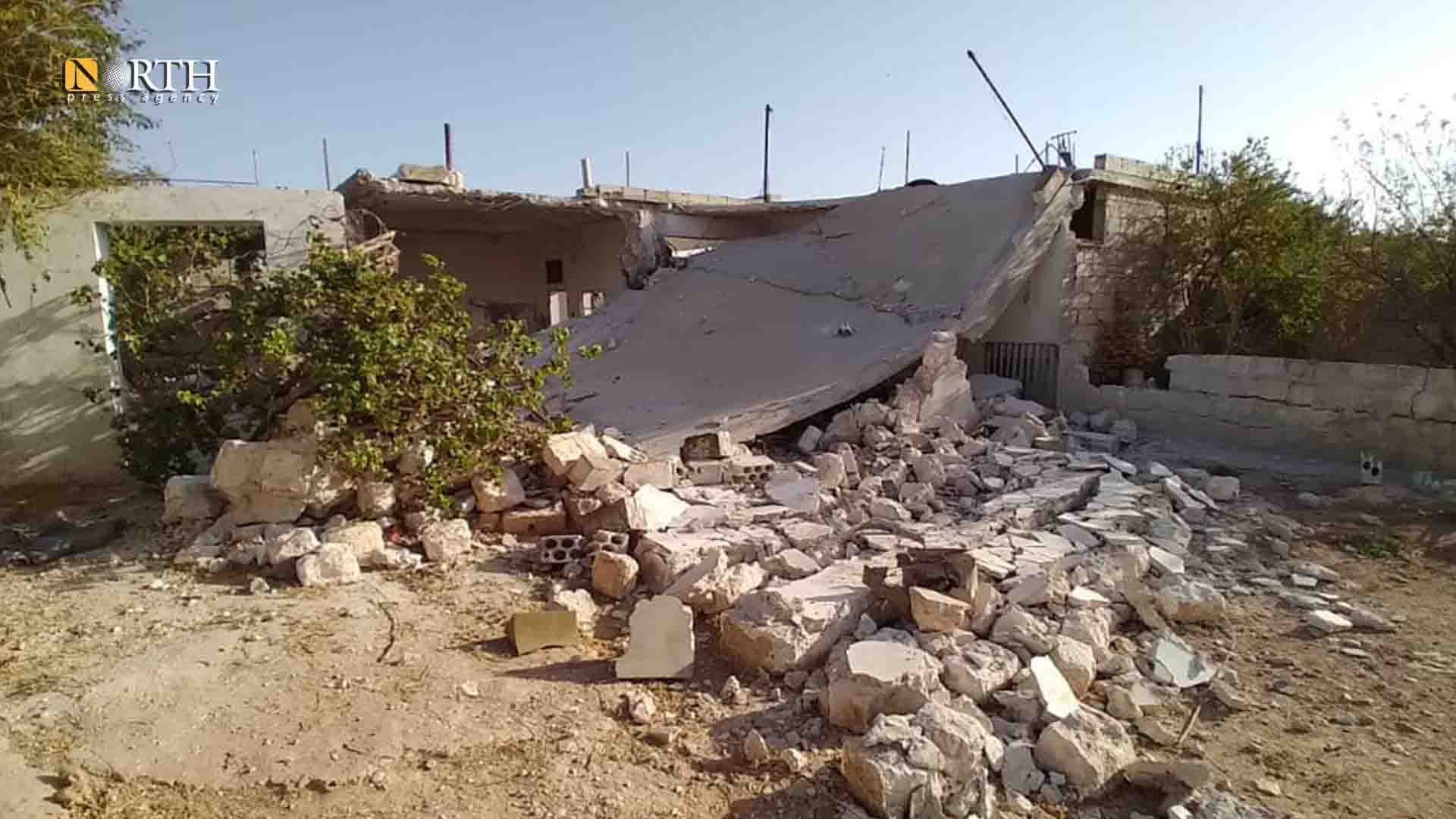IDLIB, Syria (North Press) – The fate of the areas south of the Aleppo-Latakia Highway, known as the M4, is still the subject of controversy among residents, soldiers, and activists in Idlib, northwestern Syria, while the Russian-Turkish agreement on the area remains vague.
This area includes Zawiya Mountain, which contains more than 40 towns, including the city of Ariha in the southern countryside of Idlib.
The area is witnessing daily shelling between Syrian government forces and the opposition groups, amid great fears of the collapse of the ceasefire and the return of battles and shelling to the region.
Colonel Mustafa Bakkour, the official spokesman for the Army of Glory (Jaysh al-Izza) opposition group, said that the fate of Zawiya Mountain region is subject to the Russian-Turkish agreements, and that any move by Russia and the regime on the ground can only take place according to these agreements.
The Army of Glory, formerly the Union of Glory (Tajamu al-Izza), is a Syrian rebel group active in northwestern Syria, mainly in Ghab Plain in northern Hama and its surroundings.
Bakkour told North Press that he didn’t have any confirmed information about this agreement, as its articles haven’t been announced yet.
He added, “We are not among those who attended the Astana and Sochi meetings, and the question about the fate of the region is directed to those who attended these conferences,” referring to the Turkish-backed Syrian National Army, which includes most of the opposition groups.
A source close to the Syrian National Army (SNA) told North Press that the outskirts of the Zawiya Mountain area recently witnessed mobilization and movement of government forces, and that a number of Turkish convoys entered Idlib.
The source ruled out a repeat of the M5 Highway scenario when more than 12 Turkish forces military posts in the countryside of Hama, Idlib and Aleppo were under siege by government forces.
He believed that Turkey was serious about this issue, as they have a military presence in almost every village of Zawiya Mountain, but he indicated that nothing is non-negotiable.
The leaders of the SNA cite the entry of the Turkish convoys and the establishment of new points in order to say that they do not expect Turkey and the opposition groups to abandon the Zawiya Mountain area.
Mamoun Masri, a media activist, ruled out the military control of government forces over Zawiya Mountain and the rest of Hama and Latakia countryside.
He added that the possibility is that everyone is waiting for a deal, explaining that “perhaps it would be correct to call it a swap deal between Turkey and Russia in which the south side of the M4 Highway is given to the regime forces and Russia in exchange for other areas, mostly in the northern countryside of Aleppo.”
Turkey proposed that Russia hand over the cities of Tel Rifaat and Manbij in the countryside of Aleppo, but Russia rejected the proposal and did not agree to it, according to what was published by the Russian agency Sputnik in September.
However, journalist Abu Abdullah Hamwi said, “The presence of Turkish posts in Zawiya Mountain is not considered an obstacle to the progress of the regime forces.”
Turkish Foreign Minister Mevlut Cavusoglu openly announced in a previous press conference that the area south of M4 highway would be under Russian authority with a width of six kilometers, corresponding to six kilometers north of the M4 for the control of Turkey and the Syrian opposition groups.
The agreement between Russia and Turkey in March also stipulated the conduct of joint patrols and the opening of the road to commercial movement.
Hamwi added to North Press, “Inevitably, if this agreement is implemented, the area south of the M4 Highway up to Zawiya, including the city of Ariha, will be under Russian control.”
He pointed out that all these issues are linked to each other, as well as external issues such as the conflicts in Azerbaijan and Libya.
Hamwi does not exclude any possible scenarios in Zawiya Mountain, because the Syrian government forces previously entered Murak, Sher Maghar, Sorman, and several other points despite the presence of Turkish forces. “Rather, the regime forces surrounded the Turkish points,” he clarified.
He added, “Even if the presence of the Turkish forces is heavy in Zawiya Mountain, Turkish presence in the countryside of Aleppo, Hama, and Idlib didn’t prevent the advance of the regime forces.”

